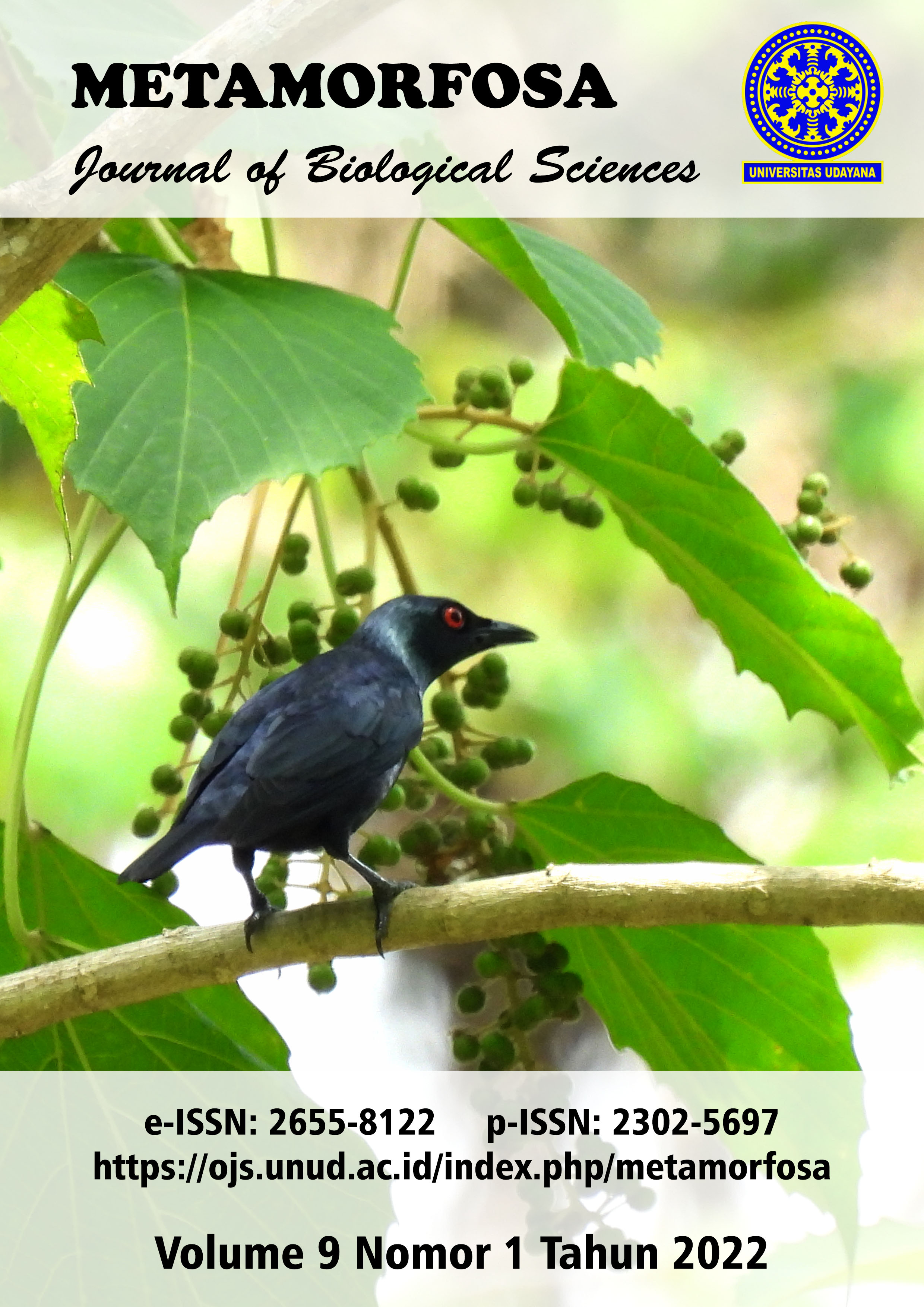Potential Of Bacteria As Fat And Oil Biodegradation In Environment Contaminated With Domestic Waste
Abstract
The contamination of waste oil and grease to the aquatic environment from industrial food processing, restaurants and kitchens or by accidental oil spills is increasingly being found. Biodegradation using a consortium of bacteria can be an effective way to overcome this. The aim of this research was to isolate and identify bacterial strains from waste oil and grease that are capable of biodegradation and the potential of degrading bacteria to degrade oil and grease in vitro. Samples were taken from waste oils and fats. Enrichment techniques were carried out for all samples followed by isolation of bacterial strains to determine which strains could degrade oil and fat in vitro. Identification of bacteria using the identification kit BBL Crystal System. The total bacteria count was carried out using the dilution method. The results showed that there were 3 strains of oil and fat degrading bacteria, namely Bacillus licheneformis, Bacillus coagulant and Psedomonas diminuta. The consortium of the three types of bacteria was able to degrade waste oil and fat with a total of 624x105 CFU / ml to 816x105 CFU / ml bacteria with a control without the addition of a bacterial consortium which was 56x101 CFU / ml. The total bacteria in various treatment wastes with a consortium of bacteria based on molasses in the invitro test showed the ability to live and develop from a fairly high bacterial consortium, namely 292x104 CFU / ml to 904x104 CFU / ml. The bacteria found had the ability to degrade working oils and fats. synergistically. The benefit of this research is that bacteria that have been found can be used as a starter for processing waste fats and oils in environments contaminated with domestic waste fats and oils.





